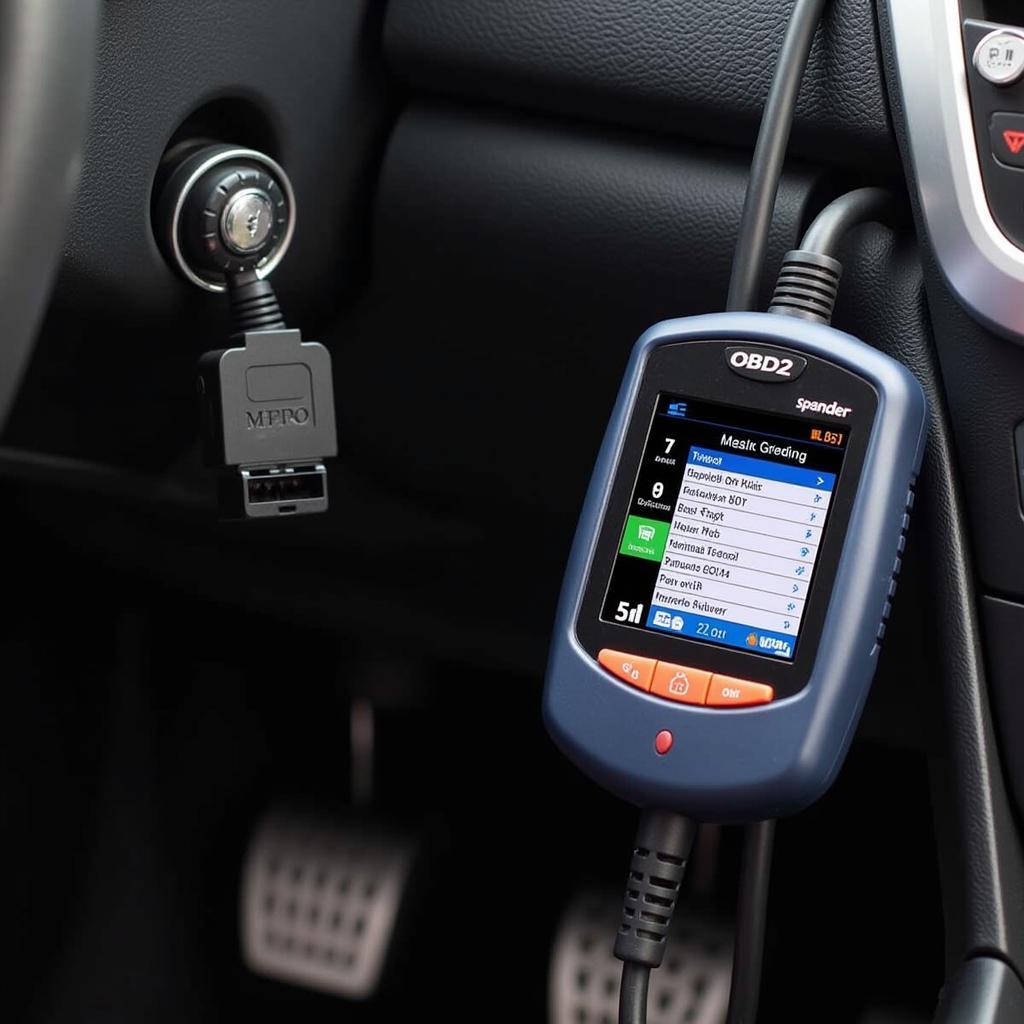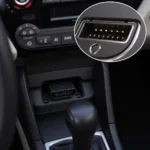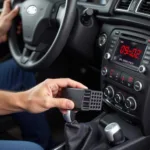The term “VPN protocol OBD2” seems to be a bit of a misnomer. You see, OBD2 (On-Board Diagnostics) and VPN (Virtual Private Network) operate in completely different technological realms. While OBD2 focuses on diagnosing and monitoring vehicle systems, VPNs are all about secure data transmission over the internet.
Think of it this way: OBD2 is like a doctor for your car, while a VPN is like a secure tunnel for your online data. They serve different purposes and don’t directly interact with each other.
Understanding OBD2 and Its Protocols
OBD2 is a standardized system that allows external devices, like scanners, to access your car’s computer and retrieve diagnostic information. This information helps mechanics understand your car’s health, identify issues, and clear error codes.
OBD2 relies on specific communication protocols, such as:
- ISO 9141-2: Common in older European and Asian vehicles.
- KWP2000 (Keyword Protocol 2000): Used by some European and Asian manufacturers.
- SAE J1850 PWM (Pulse Width Modulation): Predominantly found in older Ford vehicles.
- SAE J1850 VPW (Variable Pulse Width): Used in older GM vehicles.
- CAN (Controller Area Network): The most common protocol in modern vehicles.
These protocols define how the OBD2 scanner communicates with your car’s computer. It’s like choosing the right language to speak so both parties understand each other.
Where Does VPN Come In?
VPNs are designed to protect your online privacy and security by creating an encrypted connection between your device and the internet. They’re like digital tunnels that shield your data from prying eyes.
Now, you might wonder, “Can my OBD2 protocol be VPN?” The answer is no, not directly. Your car’s OBD2 system doesn’t inherently support VPN connections.
However, there’s a catch!
The Potential Intersection of OBD2 and VPNs
While OBD2 protocols and VPNs don’t mix directly, they might converge in the future, especially with the rise of connected cars and remote diagnostics.
Imagine this: A mechanic remotely accesses your car’s OBD2 data via a secure VPN connection to diagnose a problem without needing physical access. This scenario highlights the potential of VPN technology in enhancing the security of remote vehicle diagnostics.
Furthermore, some advanced OBD2 scanners offer internet connectivity for features like data logging and software updates. In such cases, using a VPN on the device connected to the scanner (e.g., a smartphone or laptop) can add an extra layer of security.
Key Takeaways
- OBD2 protocols and VPNs are distinct technologies with different functionalities.
- OBD2 protocols facilitate communication between your car’s computer and diagnostic tools.
- VPNs secure your internet connection by encrypting your data traffic.
- While OBD2 itself doesn’t use VPNs, the increasing connectivity in vehicles might lead to their integration for remote diagnostics and enhanced security.
FAQs about OBD2 and VPNs
Q1: Can I use a VPN to access my car’s data remotely?
Not directly. While VPNs can secure your internet connection, they don’t inherently grant access to your car’s OBD2 system. Remote access requires specialized software and hardware solutions.
Q2: Are there any security risks associated with using OBD2 scanners?
Like any connected device, unsecured OBD2 scanners can be vulnerable to hacking. It’s crucial to use reputable scanners and ensure your vehicle’s software is up to date.
Q3: What are the benefits of using a VPN with a connected OBD2 scanner?
If your OBD2 scanner connects to the internet for features like data logging or updates, using a VPN on the connected device (e.g., smartphone) can enhance data security and privacy.
Q4: Will VPNs become standard in future vehicles?
While not certain, the rising need for secure data transmission in connected cars suggests that VPNs or similar technologies might become more prevalent in the future.
Q5: Where can I find reliable information about OBD2 scanners and automotive technology?
OBDFree is your trusted source for comprehensive reviews, guides, and insights into the world of OBD2 scanners and car diagnostics.
Need Help with Your Car Diagnostics?
Our team of automotive experts is here to assist you. Contact us via WhatsApp at +1(641)206-8880 or email us at [email protected]. We provide 24/7 support to address all your car diagnostic needs.
For more information on OBD2 scanners and their capabilities, explore our website and discover a wealth of resources to help you make informed decisions about your vehicle’s health.


